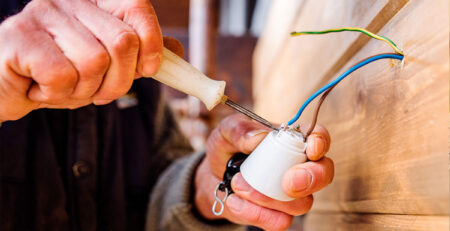Importance of Ground Resistance in Earthing Systems
Ground resistance is a critical factor in the design and installation of any earthing system. It is the measure of how well an earthing system can dissipate electrical energy to the ground. The lower the ground resistance, the better the earthing system’s ability to protect people and equipment from electrical hazards.
In this blog, we’ll explore the importance of ground resistance in earthing systems and how it affects the safety and performance of electrical installations.
What is Ground Resistance?
Ground resistance is the measurement of the electrical resistance between an earthing system and the ground. It is measured in ohms and is affected by factors such as soil type, moisture content, and the size and configuration of the earth electrode.
Why is Ground Resistance Important in Earthing Systems?
Safety:-

The primary reason for having an effective earthing system is to protect people and equipment from electrical hazards. Ground resistance is a critical factor in ensuring that an earthing system can safely dissipate electrical energy to the ground. High ground resistance can lead to dangerous levels of electrical energy being present in the system, which can cause electric shock and damage to equipment.
Performance:-
Ground resistance also affects the performance of electrical systems. High ground resistance can lead to voltage fluctuations, interference, and other performance issues that can affect the reliability and efficiency of the system. By ensuring a low ground resistance, the earthing system can provide a stable electrical environment.
Compliance:-
Many countries have regulations in place that require earthing systems to meet specific safety and performance standards. Ground resistance is a critical factor in complying with these regulations. By ensuring that the earthing system meets the required ground resistance levels, the installation can meet the necessary safety and performance standards.

At Electrogrip, we understand the importance of ground resistance in earthing systems. That’s why we provide high-quality earthing and lightning protection products that are designed to meet the highest industry standards. Our products are tested for safety, performance, and reliability, ensuring that your electrical installations are protected and compliant.
Conclusion
In conclusion, ground resistance is a critical factor in the design and installation of earthing systems. It affects the safety, performance, and compliance of electrical installations. By ensuring a low ground resistance, the earthing system can provide a safe, reliable, and efficient electrical environment. At Electrogrip, we are committed to providing products and resources that support safe and reliable electrical installations. Contact us today to learn more about our products and services by clicking on this link https://electrogrip.in/contact/
If you liked our blog on “Importance of Ground Resistance in Earthing Systems” be sure to check out our other blogs by clicking on this link https://electrogrip.in/blog/











Leave a Reply